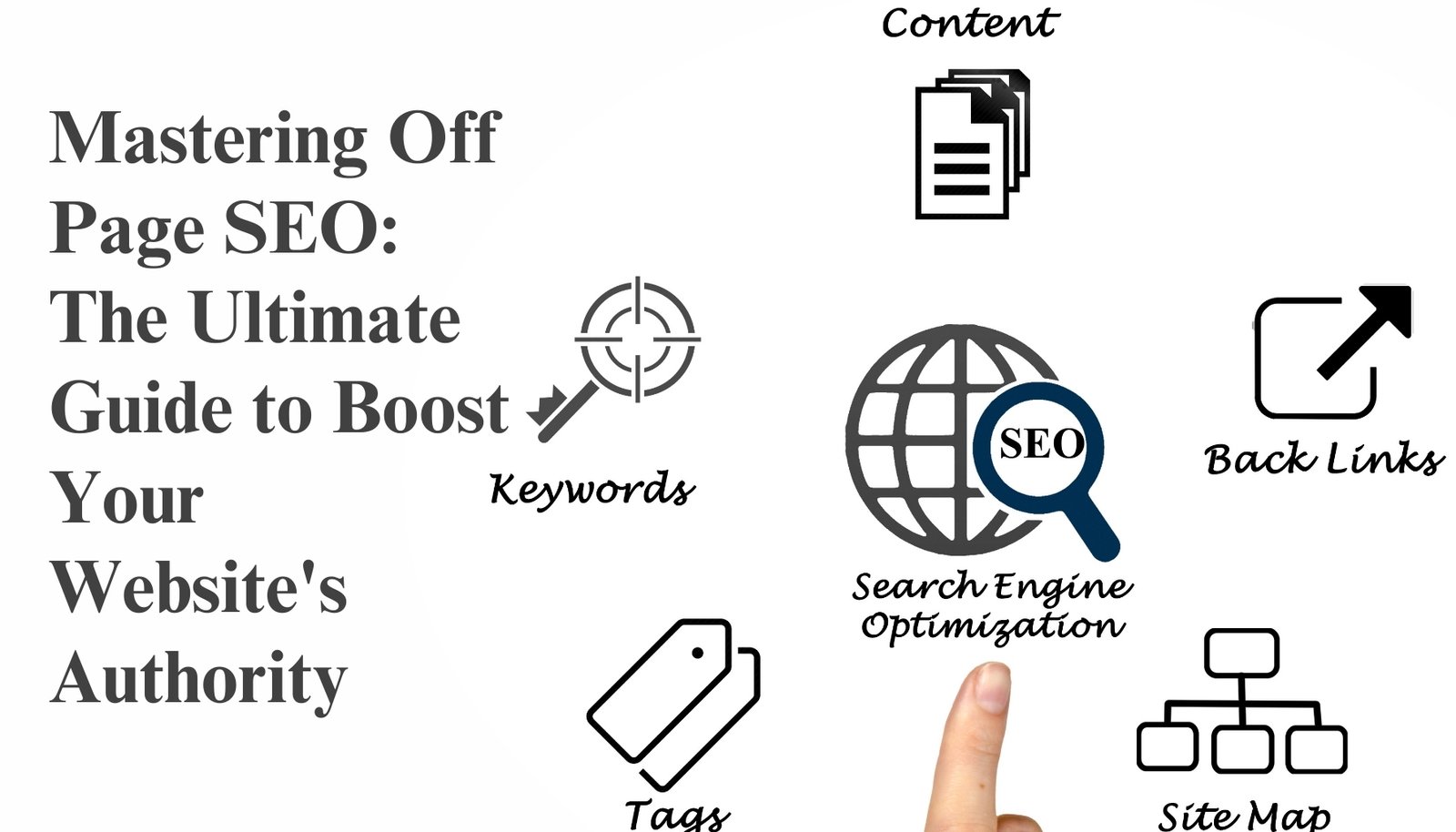Why Every Business Needs an SEO Strategist Today
What if one person could help your website climb to the top of search results and bring in a flood of organic traffic—without spending a dime on ads? That’s the power of an SEO Strategist.
In a world where visibility is everything, businesses can’t afford to guess their way through search engine optimization. A skilled SEO strategist doesn’t just optimize websites—they build growth engines that turn search intent into sales. Whether you’re a local startup or a global brand, having a strategy tailored to your goals is the key difference between success and digital silence.

If you’re wondering what exactly an SEO strategist does and how they make such a big impact, this article will break it down in a simple, scannable way—with real insights, clear definitions, and tactics you can use. Let’s dive in.
What Is an SEO Strategist? (Clear Definition)
An SEO strategist is a digital marketing professional who develops, plans, and manages SEO strategies to improve a website’s visibility on search engines like Google. They focus on:
- Keyword research
- Content optimization
- Technical SEO
- Backlink strategies
- User experience (UX)
- SEO audits and performance tracking
They don’t just follow trends—they anticipate changes, align with algorithms, and guide content creators and developers to execute a unified SEO plan.
Why an SEO Strategist Is Essential for Long-Term Growth
Here’s what makes an SEO strategist indispensable:
- Data-Driven Planning: Uses analytics and research to steer campaigns.
- Consistency: Maintains visibility even as search trends shift.
- ROI Focus: Brings in traffic that converts, not just visitors.
- Cross-Team Collaboration: Coordinates with content, design, and tech teams for a cohesive effort.
Unlike random optimization efforts, a strategist brings structure, insight, and results.
Key Responsibilities of an SEO Strategist
1. Keyword Research and Search Intent Mapping
SEO strategists begin with deep keyword analysis, identifying what your audience is really searching for.
- Primary, secondary, and long-tail keyword planning
- Analyzing competitor keyword gaps
- Matching keywords to buyer journeys
2. On-Page SEO Optimization
They ensure each page follows best practices:
- Optimized headings and meta tags
- Natural keyword placement (including focus keyword: SEO)
- Internal linking and readability improvements
3. Technical SEO Audits
An SEO strategist works with developers to fix:
- Site speed issues
- Mobile usability errors
- Broken links or crawlability problems

4. Content Strategy and Planning
Using keyword insights, they develop a content roadmap to rank for target terms.
- Blog topic ideation
- Content briefs for writers
- Regular updates for evergreen content
5. Performance Tracking and Reporting
SEO strategists use tools to monitor KPIs like:
| KPI | What It Measures | Why It Matters |
|---|---|---|
| Organic Traffic | Number of visitors via SEO | Measures overall strategy success |
| Click-Through Rate (CTR) | Search result engagement | Gauges effectiveness of titles/meta |
| Bounce Rate | User experience quality | Indicates content relevance |
| Conversion Rate | Leads or sales from SEO | Shows real business impact |
Top Skills Every SEO Strategists Should Have
Analytical Thinking
Understanding data patterns, keyword opportunities, and traffic trends is key.
Content Knowledge
SEO strategists often help shape content formats, headings, and tone to match search intent.
Technical Understanding
While not full-time developers, they must know HTML basics, schema markup, and tools like:
- Google Search Console
- Screaming Frog
- Ahrefs or SEMrush
Communication Skills
They need to translate SEO jargon into actionable steps for clients or teams.
Step-by-Step: How an SEO Strategist Builds a Winning Strategy
1. Audit the Site
The process begins with a comprehensive review of the website to evaluate its current performance. This includes checking how quickly pages load, whether the site is mobile-friendly, and ensuring that pages are properly indexed by search engines. Tools like Google Search Console and various crawling software are used to detect crawl errors, broken links, duplicate content, and other technical issues that could hinder performance.
The goal here is to establish a baseline. Understanding what is working and what isn’t helps create a strong foundation for the strategy moving forward.
2. Analyze Competitors
Next, a competitive analysis is conducted to identify key players in the same niche or industry. This involves studying their websites, content strategies, backlink profiles, and keyword rankings. The goal is to determine why certain competitors perform better and to uncover gaps or opportunities in the market.
By identifying what’s missing from your own site compared to top-ranking competitors, a strategist can make informed decisions about how to gain an advantage in the search results.
3. Identify Keyword Opportunities
In this phase, detailed keyword research is performed. This includes uncovering primary search terms relevant to the business, as well as long-tail phrases and questions users are typing into search engines. Emphasis is placed on identifying terms with low to medium competition but high relevance and intent.
This step ensures that content created will not only rank more easily but also attract users who are more likely to take meaningful actions such as signing up, purchasing, or contacting the business.
4. Create a Content Calendar
With keyword data in hand, a well-structured content calendar is developed. This calendar outlines when and what type of content should be published—such as blog posts, service pages, product descriptions, or FAQ sections. Each piece is planned to target specific keywords and align with user intent.
A consistent publishing schedule ensures that content production supports long-term visibility and growth. It also allows the site to build topical authority in its field over time.

5. Optimize Technical Factors
Technical improvements play a critical role in how well a website performs in search results. This step includes enhancing page load speed, refining internal link structure, securing the site with HTTPS, and improving site architecture for better crawlability.
Attention is also given to structured data, canonical tags, and XML sitemaps—all essential components that help search engines understand and index the website more efficiently.
6. Build Links and Authority
Gaining external links from reputable websites is vital to establishing authority and credibility in the eyes of search engines. A successful strategy includes developing link-worthy content and conducting outreach campaigns to earn backlinks.
Internal linking is also addressed to pass authority throughout the site and guide users toward relevant content. Monitoring domain authority and refining outreach efforts over time ensures continued progress.
7. Track, Report, and Improve
No strategy is complete without tracking performance and adjusting based on results. Key performance indicators such as organic traffic, ranking positions, bounce rate, and conversions are monitored regularly. Reports are generated monthly to evaluate what’s working and what needs attention.
Based on these insights, adjustments are made to content, technical settings, and targeting tactics to keep the website competitive and aligned with algorithm updates or market shifts.
Benefits of Hiring an SEO Strategist
- Increased organic traffic
- Higher-quality leads
- Reduced dependence on paid ads
- Better user experience and brand authority
Common Mistakes an SEO Strategist Helps Avoid
- Keyword stuffing
- Ignoring mobile SEO
- Skipping technical fixes
- Chasing irrelevant traffic
- Lack of ongoing analysis
FAQ: What People Also Ask About SEO Strategists
What does an SEO strategist do daily?
An SEO strategist reviews site performance, updates content strategies, audits pages, and collaborates with teams to align SEO goals with business outcomes.
Is SEO strategist a good career?
Yes! With the digital world growing, businesses rely on SEO strategists to drive visibility and growth. It’s a career with high demand and evolving challenges.
How do I become an SEO strategist?
Learn digital marketing fundamentals, specialize in SEO tools, work on real projects, and stay updated with Google algorithm changes.
What’s the difference between an SEO strategist and an SEO specialist?
A strategist creates the overall plan and vision; a specialist often executes specific tasks like link building or on-page SEO.
Do small businesses need an SEO strategist?
Absolutely. Even small websites benefit from a focused strategy to compete locally or in niche markets.
Related Insights: People Also Search For
- SEO expert
- Search Engine Optimization consultants
- Digital marketing strategist
- Technical SEO specialist
- Local SEO expert
- Keyword research specialist
- Content strategist for SEO
Conclusion: Unlock the Power of an SEO Strategist
An SEO strategist is more than just a search engine expert—they’re your digital growth partner. From increasing traffic to improving UX, they make sure every SEO effort leads to real business results.
If your site isn’t getting the attention it deserves, it may be time to stop guessing and start strategizing.
Ready to grow smarter and rank higher?
Connect with the experts at Wisdom Digital Marketing today and discover how a tailored SEO strategy can transform your online presence.















